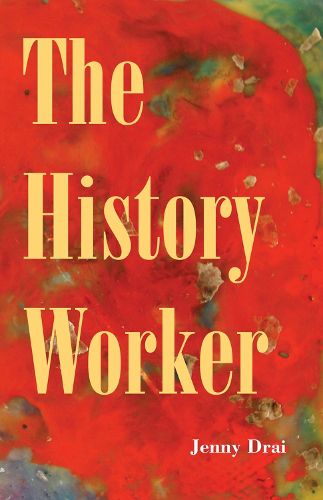Readings Newsletter
Become a Readings Member to make your shopping experience even easier.
Sign in or sign up for free!
You’re not far away from qualifying for FREE standard shipping within Australia
You’ve qualified for FREE standard shipping within Australia
The cart is loading…






Poetry. Jenny Drai’s THE HISTORY WORKER examines the author’s experience as the descendent of Romanian and German immigrants and leads the reader on a journey that begins with (and coalesces around) a visit to Hearst Castle, built on what was once native Chumash land. This journey also takes turns through Drai’s childhood as she comes to map out and identify perhaps one of the most damning collisions between US history and the immigrant experience: namely that it is impossible to ‘discover’ a body of land that is already populated. Sometimes pointed, sometimes dreamy, THE HISTORY WORKER charts out and examines the influences on one individual’s imagination. The author remembers elementary school history lessons and early years spent paging through Will and Ariel Durant’s popular history opus The Story of Civilization. She considers the influences of, as an adult, watching Deadwood (with its own Hearst tie-in) and engaging with Wolfram von Eschenbach’s Parzival. Drai explores how what has been absorbed by imagination can correspond to and encourage necessary questioning of the often incomplete record of US history. Grounded in a child’s curiosity, THE HISTORY WORKER invites the reader to both be your own damnation and to restore ‘personally’ the manifestations of memory and of history.
$9.00 standard shipping within Australia
FREE standard shipping within Australia for orders over $100.00
Express & International shipping calculated at checkout
Poetry. Jenny Drai’s THE HISTORY WORKER examines the author’s experience as the descendent of Romanian and German immigrants and leads the reader on a journey that begins with (and coalesces around) a visit to Hearst Castle, built on what was once native Chumash land. This journey also takes turns through Drai’s childhood as she comes to map out and identify perhaps one of the most damning collisions between US history and the immigrant experience: namely that it is impossible to ‘discover’ a body of land that is already populated. Sometimes pointed, sometimes dreamy, THE HISTORY WORKER charts out and examines the influences on one individual’s imagination. The author remembers elementary school history lessons and early years spent paging through Will and Ariel Durant’s popular history opus The Story of Civilization. She considers the influences of, as an adult, watching Deadwood (with its own Hearst tie-in) and engaging with Wolfram von Eschenbach’s Parzival. Drai explores how what has been absorbed by imagination can correspond to and encourage necessary questioning of the often incomplete record of US history. Grounded in a child’s curiosity, THE HISTORY WORKER invites the reader to both be your own damnation and to restore ‘personally’ the manifestations of memory and of history.